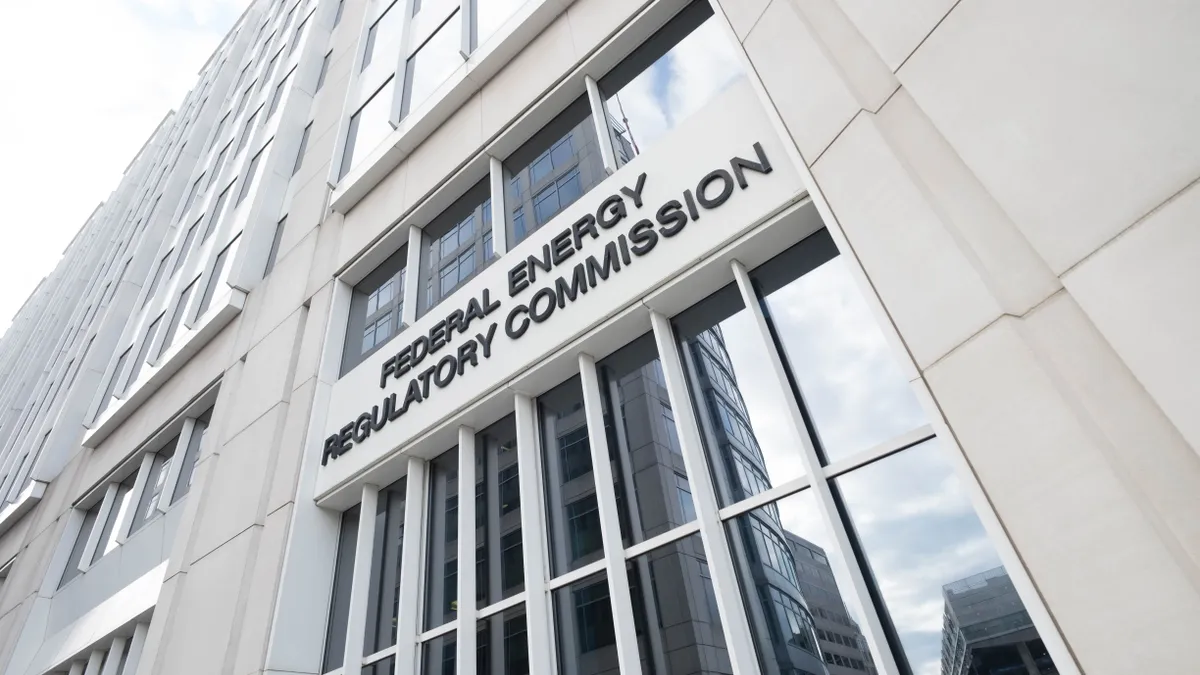Dive Brief:
-
With pent-up public demand and investors standing by, transmission and interconnection concerns remain the primary barriers to a significant increase in renewable energy deployment, panelists said during a Wednesday morning discussion hosted by the American Council on Renewable Energy (ACORE).
-
However, the U.S. appears to be on the cusp of meaningful transmission reform between infrastructure talks in Congress, Biden's Build Back Better plan, and FERC's recent advance notice of proposed rulemaking on transmission planning, according to Kevin Gresham, senior vice president of government relations and external affairs at RWE Renewables America.
-
"It's a really exciting time for the industry," Gresham said. "We need to focus our intention and work over the next really short period of time to get this underway."
Dive Insight
Interconnection delays and insufficient transmission, not public support or access to financing, are now the top barriers to renewable energy expansion, according to speakers participating in the first day of ACORE's 2021 Virtual Grid Forum. Fortunately, they said, they see reason to believe change is on the horizon.
A transmission tax credit currently under consideration by Congress could bring immediate relief to 22 transmission projects that are currently stalled, potentially allowing those projects to be completed within the next five to six years, said Christina Hayes, vice president of federal regulatory affairs for Berkshire Hathaway Energy.
Pent-up demand, and even PPAs that are signed but cannot be built because of interconnection delays, could result in "monumental" levels of renewable energy deployment in 2022 and 2023 if Congress approves an infrastructure package and other policy actions go forward, according to Alex Daberko, managing director of infrastructure investment firm Starwood Energy Group.
"We think that might open the flood gates to a lot of projects that have been caught in a bit of purgatory," Daberko said.
As a customer looking to buy renewable energy, Steve Chriss, director of energy services for Walmart, said transmission infrastructure is increasingly top of mind. It's not just the interconnection delays, he said, but growing concerns about reliability and resilience in the event of emergencies. Walmart aims to decarbonize its operations by 2040, he said, which will require a significant expansion of its electrical demand as it moves away from natural gas and propane and electrifies its refrigeration and logistics equipment. Reliable electric service is critical to those goals, he said.
Chriss said Walmart could be open to future PPAs that include private transmission projects to ensure this reliability component, but said that overall the retail company believes "customers should not have to take reliability and resilience into their own hands."
"The concept of an adder or something special for a special project is '2019 thinking,'" Chriss said. "The goal for corporate procurement should be to get to the point where we don't need to do corporate procurement, because the steady state is clean."
There is still some room to work out the implementation details and how a potential infrastructure package would interface with state policies, Daberko said. Chriss also noted a need for more focus on cooperatives, municipal utilities, and smaller regional utilities.
But on the whole, Hayes said, it was difficult to find significant gaps in the policies currently being discussed.
"There's so much happening right now it feels like the pressure is to find where the gap is, but the truth is this is a long haul industry, and transmission is an iterative process," Hayes said. "We don't have to solve all the problems today."













